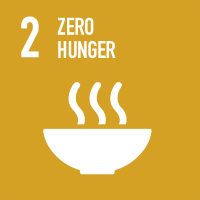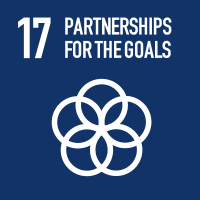Studying at the University of Verona
Here you can find information on the organisational aspects of the Programme, lecture timetables, learning activities and useful contact details for your time at the University, from enrolment to graduation.
Type D and Type F activities
This information is intended exclusively for students already enrolled in this course.If you are a new student interested in enrolling, you can find information about the course of study on the course page:
Laurea magistrale a ciclo unico in Giurisprudenza - Enrollment from 2025/2026| years | Modules | TAF | Teacher |
|---|---|---|---|
| 4° 5° | Tai-Ti aiuto io | D | Not yet assigned |
| 4° 5° | Sexual harassment in the university setting. Know, Act, Protect. UNI4Equity European project workshop | D | Not yet assigned |
| 4° 5° | Uni4equity Workshop “Molestie sessuali in ambito universitario. Un approccio multidisciplinare e intersezionale alla prevenzione” | D | Not yet assigned |
Law of International Organizations (2024/2025)
Teaching code
4S008460
Teacher
Coordinator
Credits
6
Language
English
Scientific Disciplinary Sector (SSD)
IUS/13 - INTERNATIONAL LAW
Period
1° periodo lezioni (1A) dal Sep 16, 2024 al Oct 30, 2024.
Courses Single
Authorized
Learning objectives
The course focuses on the study of the main international organizations, with a focus on the System of United Nations, which includes the UN, its specialized agencies (in particular, UNESCO), the treaty bodies and the universal procedures, the European Union, the International Criminal Court and other international and internationalized criminal tribunals. The course is built along the lines of the main legal issues concerning the law of international organizations and aims to the deep understanding of the notions of international personality, immunities from the jurisdiction of national courts, membership and withdrawn, normative powers and standard-setting, international responsibility, external relations and the powers of international organizations to directly address individuals and companies.
Prerequisites and basic notions
International Law
Program
The course focuses on the study of the main international organizations (IOs), with a focus on the System of United Nations (which includes the United Nations (UN), its specialized agencies (in particular, UNESCO), the treaty bodies and the universal procedures), the International Criminal Court and other international and internationalized criminal tribunals, and regional organizations - with a focus on African Union.
The course is devoted in part to the examination of the "Palestinian question" before the maim international organizations.
The course is built along the lines of the main legal issues concerning the law of international organizations and aims to the deep understanding of the notions of international personality, immunities from the jurisdiction of national courts, membership and withdrawn, normative powers and standard-setting, international responsibility, external relations and the powers of IOs to directly address individuals and companies.
Bibliography
Didactic methods
TEACHING
The course is co-taught with Prof. David Donat Cattin, Professor of International Law at the Center for Global Affairs at New York University (NYU) and Secretary General of the nongovernmental organization Parliamentarians for Global Action. In compliance with the University guidelines, the lessons will be held in the presence The recording of each lesson will be available on the course's moodle page.
The course is taught entirely in English. The teaching method combines lectures, case-studies and group discussion.
The video recordings will be made available only to attending students and, upon request, to students who are in particular situations of fragility due to disabilities or learning disabilities.
Learning assessment procedures
Attending students shall prepare on their notes and the materials indicated during the course and made available on the moodle platform.
Students who did not attend the course shall prepare on Jan Klabbers, Advanced Introduction to the Law of International Organizations, Elgar, 2015.
The examination shall be in English for attending students (with modalities to be agreed upon during the course) and non attending students (oral interview).
Evaluation criteria
Attending students will have the opportunity to be evaluated on the basis of an oral presentation and a written report, as evidence of the presentation, on a topic covered in class.
Non-attending students will take an oral interview with 3 questions designed to ascertain knowledge related to the fundamental institutes of the subject as covered in the reference textbook.
Criteria for the composition of the final grade
The final grade will be given in thirtieths.
For attending students who offer a presentation/report, the evaluation will also take into account class attendance and participation.
For students taking the oral interview, each question will be scored from 6 to 10 points.
Exam language
English




